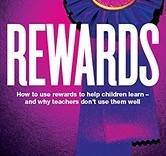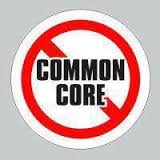
Categories: education

The Man Who Knew Everything
With Alan JacobsOr, at least, who tried to acquire all important knowledge by reading every word of the Encyclopedia Britannica. This ambitious young fellow, Alan Jacobs, then wrote an amusing book about his project and in 2004 discussed what he had learned while the proprietor challenged the limits of his and the EB’s knowledge. A good time was had by all.

Miseducation: How “Reward” Punishes
With Herbert Walberg and Joseph BastThe scandal in our public education is most obvious in the schools of the “inner city,” but also bedevils most of the rest of the schools of comparatively affluent America. Why and how? Through the injurious effects of “niceness” and “educational egalitarianism.” Not only is no child to be left behind, he or she is to be given no honest evaluation of performance, attainment and progress. Instead, all are “rewarded” promiscuously for whatever the teacher can find to praise, be it some “alternative”intelligence, “empathic relatedness,” or just being there. By no means must the child ever be allowed to recognize that he or she has performed poorly on any task or has not given enough effort or attention.
Thus, according to our guests, Herbert Walberg and Joseph Bast, have the teacher’s colleges and the two major teachers unions kept this country – which spends more on education than any other – at the mere middle of the educational attainment distribution, exceeded by virtually all western European nations plus, of course, China and Japan.
The answer is not to give up the uses of reward in education but to connect it to actual merit, to eschew false flattery for simple realism and honest evaluation. Strengthening the curriculum and raising standards would also be –to say the least–helpful. All of this is well argued and elaborated in a new book by Walberg and Bast and in this episode.

Can Common Core Rescue American Education?
With Peter Wood and Sol SternAnyone who teaches in an American college or university and is over 50 knows – but may not admit or confess – that the average freshman is below, often far below, what was average even as recently as 20 years ago. The deficiencies are in math skills, history, knowledge of science and, of course, in the ability to write or comprehend real English. Nor are theses deficiencies necessarily corrected by the time the freshman has become a senior.
The “Common Core” movement is the latest panacea and is financially backed by the federal government. It is in operation in some states and debated with increasing anger in all of them. Here, drawing from the recent book in which they debated whether the common core should be implemented or discarded, are two leading conservative observers of the educational scene. On the “pro” side is Sol Stern of the Manhattan Institute. On the “con” side is Peter Wood, President of the National Scholars Association. The disagreement is intense and the stakes are very high for a country that spends more than any other on education and yet is exceeded in educational attainment – and, perhaps even in the essential skills of literacy – by half of the rest of the world.
Intelligence And How To Get It
With Richard NisbetPsychologists have argued for a century or more over these questions: What is intelligence? How is it distributed within varied populations? Is it genetically determined? Can it be affected by education, by personality, mood and, for that matter, diet? Social psychologist Richard Nisbet joined us to give his research-based answers to those and other questions in this 2009 conversation.
Like Us on Facebook
New title
Latest News

Welcome to The Milt Rosenberg Show
This website is the home of The Milt Rosenberg Show.…
Milt Rosenberg Obituary
Facebook Like Widget
Shows By Topic
Shows by Topic
- arts + letters (84)
- arts+letters (1)
- business (5)
- chicago (10)
- crime (13)
- current events (81)
- economics (18)
- education (18)
- global affairs (105)
- health + healthcare (19)
- history (150)
- humor (18)
- language (14)
- law (7)
- media (28)
- music (5)
- philosophy (19)
- politics (120)
- religion (45)
- science (52)
- social science (22)
- technology (4)



